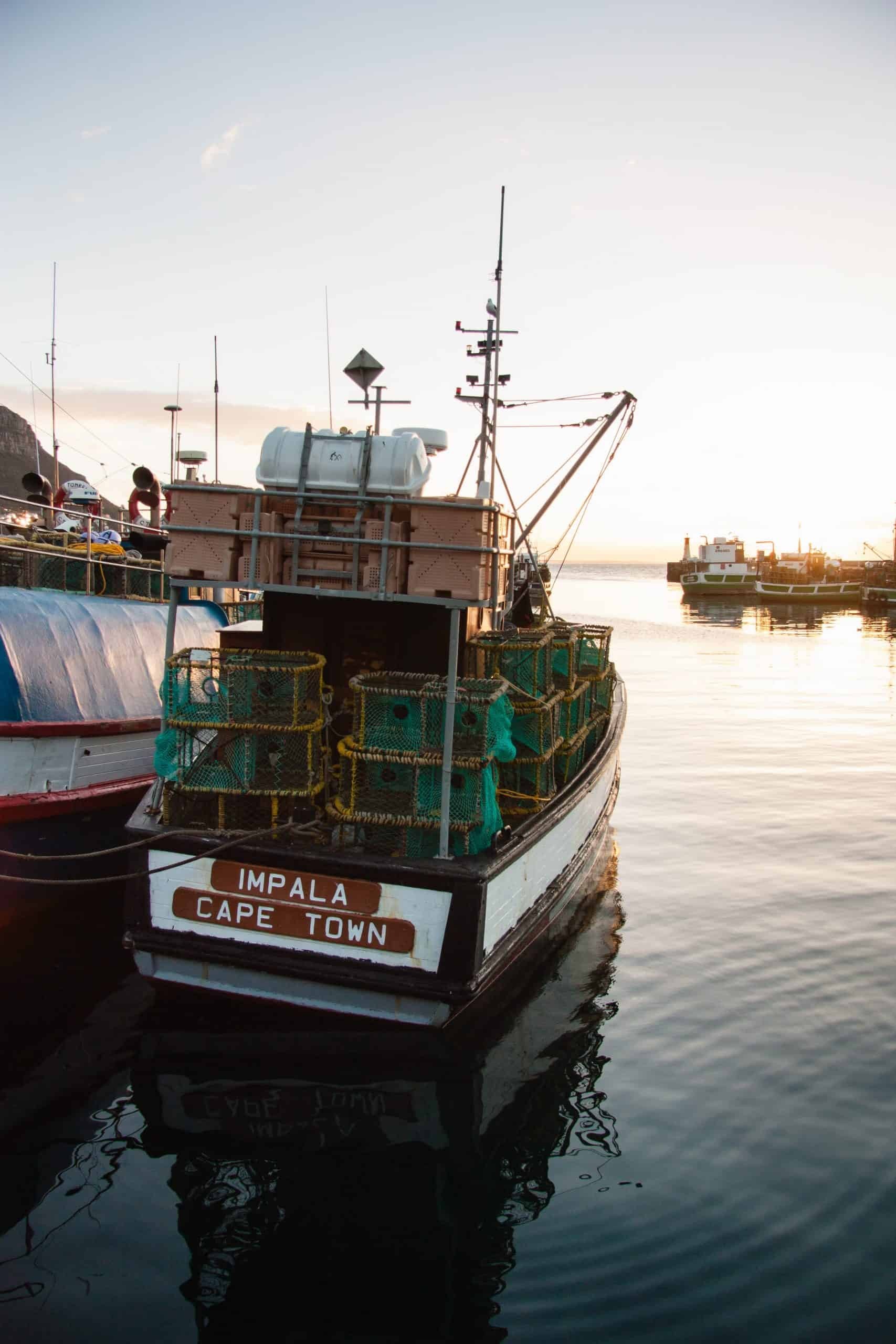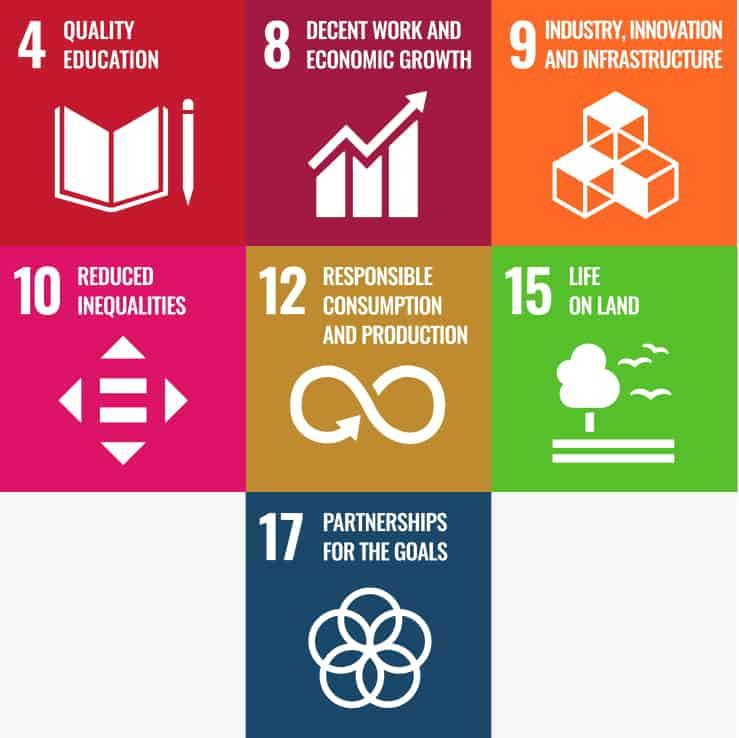Main Navigation
South Africa
Overview
South Africa's multi-faceted development path is a national priority, linking economic prosperity to environmental sustainability and social equity.
South Africa has become one of the largest economies in Africa, benefiting from high levels of industrialisation and abundant natural resources, including large mineral deposits. The economy is still expanding, but economic growth has slowed in recent years, with many social and environmental challenges persisting — such as inequality, poverty, and unemployment as well as industrialisation that sees an increasing exploitation of natural resources.
To link economic prosperity with environmental sustainability, the government identified green economy as a national priority beginning in 2010 with its New Growth Path in 2010. This was followed by a number of commitments such as the Green Economy Accord of 2011, South African National Development Plan 2030 (adopted in 2012) and the Medium-Term Strategic Framework (2014-2019). These plans outline commitments to mitigating climate change and realizing the country’s national development vision.
South Africa has become one of the largest economies in Africa, benefiting from high levels of industrialization and abundant natural resources, including large mineral deposits. The economy is still expanding, but economic growth has slowed in recent years, with many social and environmental challenges persisting — such as inequality, poverty, and unemployment as well as industrialisation that sees an increasing exploitation of natural resources.
To link economic prosperity with environmental sustainability, the government identified green economy as a national priority beginning in 2010 with its New Growth Path in 2010. This was followed by a number of commitments such as the Green Economy Accord of 2011, South African National Development Plan 2030 (adopted in 2012) and the Medium-Term Strategic Framework (2014-2019). These plans outline commitments to mitigating climate change and realizing the country’s national development vision.
More recently, a carbon tax was signed into law (effective from June 2019), and a Law Emission Development Strategy (SA-LEDS) was developed by the Department of Environment, Forestry and Fisheries.
Given the comprehensive green economy policy framework already in place when South Africa joined the partnership in 2015, PAGE work has been structured around improving policy coordination, deepening collaboration between different stakeholders and supporting policy implementation. PAGE has also helped to identify sectors and industrial segments with potential for IGE transformation and strengthened capabilities through green economy learning and training. The work aligns with priority areas identified in the Medium-Term Strategic Framework focused on the creation of a framework for implementing the transition to an environmentally sustainable and low-carbon economy and harnessing technical capacity for the development and maintenance of datasets for policy-relevant statistics, indicators and indices.
Sustainable Development
Achievements to date include a green economy progress measurement framework, social dialogue on Just Transition and contributions towards policy reforms related to green industry, trade, water management and renewable energy.
In turn, PAGE has contributed to the achievement of SDG 8 (Decent Work and Economic Growth) and cut across several other SDGs, including SDGs 4 (Quality Education), 9 (Industry, Innovation and Infrastructure), 10 (Reduced Inequalities), 12 (Responsible Consumption and Production), 15 (Life on Land) and 17 (Partnership for the Goals), as well as South Africa’s NDCs.
COVID-19 and Green Recovery
The COVID-19 pandemic and the subsequent lockdown had a significant impact on the economy — including job losses of 2.2 million in the 2nd quarter of 2020 — which expanded the unemployment rate to 42%. In response, the Government of South Africa has put in place economic relief schemes to mitigate the socio-economic impact, with the corporate and private sector contributing. PAGE began a rapid modelling exercise to assess the impact of South Africa’s relief package on inclusive green economy and to offer insights for potential routes for green recovery. An additional programme proposal for targeted green recovery support through PAGE was approved in November of 2020 with work underway as of 2021.
Through this, PAGE will offer technical assistance to the greening of South Africa’s COVID-19 economic recovery packages. The focus will be on mainstreaming and supporting green economic opportunities in key economic sectors to mitigate the socio-economic impacts of the pandemic. Activities include training the National Treasury and other national partners on macroeconomic modeling to assess the social and employment impacts of policy responses; mobilizing stakeholders through dialogue and media promotion on the national economic recovery plan as well as sectoral economic recovery plans; and building the capacity of public and private institutions — including business development service providers, national learning institutions, civil society organizations, and other relevant stakeholders — to promote green entrepreneurship and small business recovery.
PAGE Milestones
- 2015
South Africa joins PAGE
- 2016
National Steering Committee (NSC) established
Green Economy Inventory conducted
- 2017
Green Economy Learning Assessment developed
Training of trainers on developing e-learning for green economy delivered
Two discussion papers informing OR Tambo Debate Series on renewable energy pathways
- 2018
National Academy on Green Economy held with stakeholders from all nine provinces
Training workshop held on the Green Economy Progress Measurement (GEP) Framework for several government departments
Validation workshop on Bio-composite Action Plan and Implementation Strategy held
Roundtable discussion with youth formations under O.R. Tambo debate series on Just Transition
- 2019
Third PAGE Ministerial Conference held in Cape Town
Green economy e-learning incorporated into the Centre for Environment Management (CEM) course portfolio
Roundtable discussion with labour movements under O.R. Tambo debate series on Just Transition
Dashboard of green economy and environmental sustainability indicators to track South Africa’s progress developed
South Africa Green Economic Modelling (SAGEM) report updated to include system dynamics models on the water bio-diversity nexus
Draft national sustainability plan produced
- 2020
Training workshop on “Climate Smart Agriculture and Trade Opportunities”
Feasibility study for Biomaterials in South Africa launched at PAGE-hosted side event at Bio Africa Convention
PAGE COVID-19 IGE Rapid Modelling exercise launched
GEP Measurement Framework for South Africa launched
Validation workshop GEP Measurement Framework for South Africa
Progress in 2020: A Snapshot
Measurements for progress
Following consultations between UNEP and the Department of Environmental Affairs (DEA), the Green Economy Progress (GEP) Measurement […]
Following consultations between UNEP and the Department of Environmental Affairs (DEA), the Green Economy Progress (GEP) Measurement Framework for South Africa was completed in 2020 with the report finalized on 8 December. The GEP Measurement Framework captures the many dimensions of an Inclusive Green Economy, and measures the accumulation of natural, human, and social capital as inputs for producing goods and services in an environmentally friendly way.
Modelling for a green recovery
To enhance strategies for mitigating the socio-economic impacts of COVID-19, PAGE delivered immediate analytical support, engaging […]
To enhance strategies for mitigating the socio-economic impacts of COVID-19, PAGE delivered immediate analytical support, engaging South Africa in a globally organized rapid modelling exercise undertaken by PAGE and Cambridge Econometrics. The analysis compared scenarios for recovery package scenarios and their associated immediate to long-term impacts. This will be further supported by a training for the National Treasury staff to build capacity on macroeconomic modelling.
PAGE also worked together with the government committee responsible for developing the Green Recovery Plan for South Africa and approved additional programme work for green recovery in November 2020. As mentioned above, this includes technical assistance to the greening of South Africa’s COVID-19 economic recovery packages, focusing on mainstreaming and supporting green economic opportunities in key economic sectors to mitigate the socio-economic impacts of the pandemic.
Building a Bio-composite sector
In 2020, PAGE completed a feasibility study for Biomaterials in South Africa to better understand the bio-composite sector, assessing […]
In 2020, PAGE completed a feasibility study for Biomaterials in South Africa to better understand the bio-composite sector, assessing availability of feedstock, commercialization of emerging technologies, export opportunities, as well as skills available in the labour market. Launched during the Bio Africa Convention on 25 August 2020, the report was discussed in a panel alongside the Bio-composite Action Plan and Implementation Strategy published in 2019.
The National Dept of Agriculture, Land Reform and Rural Development is currently developing policy framework on Climate Smart Agriculture. PAGE is providing support to implementing the Driving Force for Change youth and women owned entrepreneurship challenge initiative by the Department for Environment, Forestry and Fisheries (DEFF) and the Imvelisi Developing African Enviropreneurs by DSI, SANBI and GreenMatterZA as part of building green and inclusive recovery.
Skills for a green future
In collaboration with the Department of Environment, Forestry and Fisheries, PAGE held a training workshop in July on “Climate Smart […]
In collaboration with the Department of Environment, Forestry and Fisheries, PAGE held a training workshop in July on “Climate Smart Agriculture and Trade Opportunities”. The training targeted government officials, and business leaders, exporters and agricultural industry stakeholders, aiming to support export growth in sustainably farmed products through enhanced capacity.
Global knowledge-sharing and collaboration
PAGE has engaged as a member of the Circular Economy Task Force within the South African Government, whose work is driven by the […]
PAGE has engaged as a member of the Circular Economy Task Force within the South African Government, whose work is driven by the Department of Science and Innovation. In February 2020, the Task Force organized a study tour to Bilbao, Spain and the EU headquarters to gain insights on best practices for Circular Economy policy and implementation processes, contributing to the government’s efforts to build a Circular Economy ecosystem.
PAGE South Africa also contributed to the EU Climate Diplomacy Week as a panelist in a webinar on “Reimagining Our Future – Entrepreneurship for A Just Transition” in September 2020, sharing experiences on tools to advance just transition approaches as part of just and green recovery efforts, with South Africa as a leading example.
UNEP has finalized a Green Economy Policy Review of South Africa’s Industrial Policy Framework, complementing PAGE’s work. The review is based on a methodology, which helps countries to enhance, monitor and evaluate existing Green Economy policies, and informs future Green Economy pathways. This application allowed South Africa to take stock of the current status of the country’s industrial policy framework informing forward planning.
Within the UNEP-GIZ GET project, a green jobs dialogue was held in November to foster South-South Collaboration between South Africa and Argentina. The webinar “Green jobs and a just transition: Country perspectives”, in collaboration with ILO and GGKP, featured leading voices from the two countries and is part of an ongoing series with GIZ on Green Economy Transformation.




